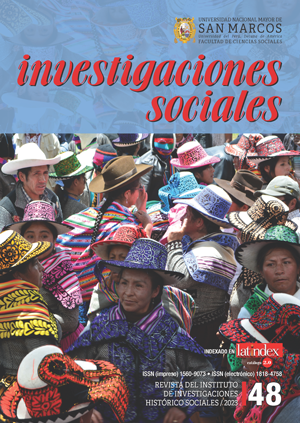Foreign trade in Alfonsín years: reflections from Argentina's trade balance (1983-1989)
DOI:
https://doi.org/10.15381/is.n48.24149Keywords:
foreign trade, democracy, international relations, exports, importsAbstract
We review trade balance statistics in the years of Raúl Alfonsín (1983-1989), seeking to contribute to the discussion of trade policy on issues such as the origins of Mercosur (Southern Common Market) and the role of the US and European nations in the post-dictatorship. Through statistical sources in the Center for International Economics of the Secretariat of International Economic Relations, we analyze commercial links with different nation blocs, focusing on exports, imports, amounts reached, and product types that characterized the years of the recent democracy. In addition to the preponderance of the United States and Brazil as main trading partners, other countries, mainly European, had significant interference in Argentina's international trade. Thus, the origins of Mercosur and the growing hegemonic advance with the US are underestimated at this time by the European role in the trade balance.
Downloads
Published
Issue
Section
License
Copyright (c) 2023 Ignacio Andrés Rossi

This work is licensed under a Creative Commons Attribution 4.0 International License.
AUTHORS RETAIN THEIR RIGHTS:
a. Authors retain their trade mark rights and patent, and also on any process or procedure described in the article.
b. Authors retain their right to share, copy, distribute, perform and publicly communicate their article (eg, to place their article in an institutional repository or publish it in a book), with an acknowledgment of its initial publication in Investigaciones Sociales.
c. Authors retain theirs right to make a subsequent publication of their work, to use the article or any part thereof (eg a compilation of his papers, lecture notes, thesis, or a book), always indicating the source of publication (the originator of the work, journal, volume, number and date).













